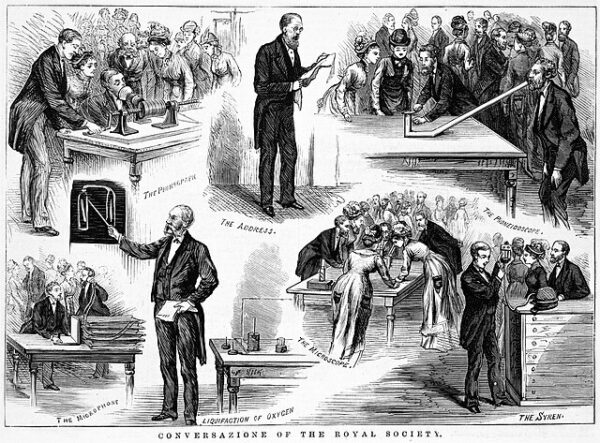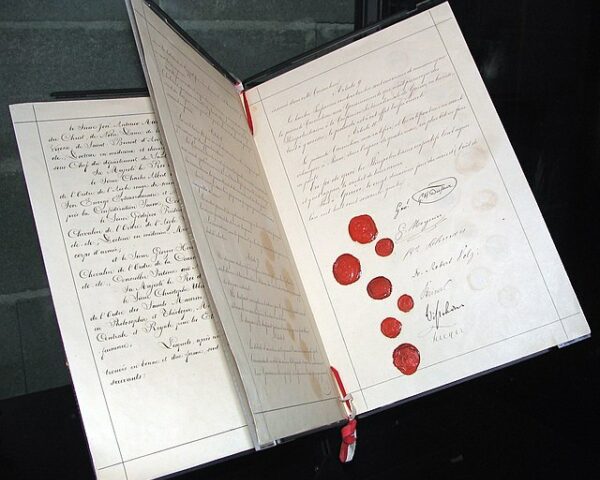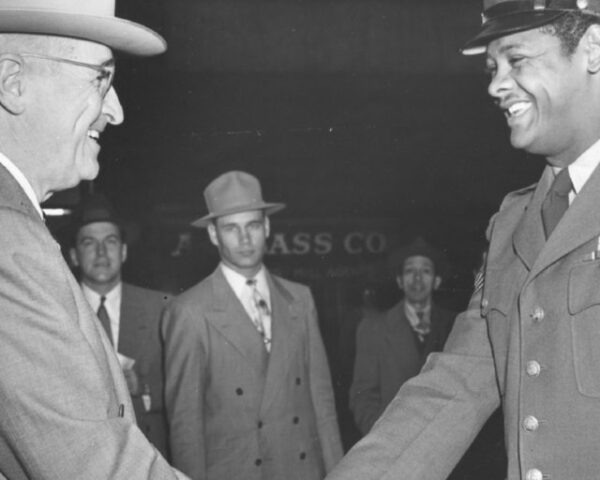On November 28, 1660, the first “learned society” meeting followed a lecture at Gresham College in London by Christopher Wren. Joined by other leading polymaths at the time, including Christopher Wren, Robert Boyle, John Wilkins, and Sir Robert Moray, the group soon received royal assent, becoming known as “The Royal Society of London for Improving Natural Knowledge.”
The Royal Society’s motto, “Nullius in verba,” means “take nobody’s word for it,” notes The Society. “It is an expression of the determination of Fellows to withstand the domination of authority and to verify all statements by an appeal to facts determined by experiment.”
Established during the scientific revolution, its inception was fueled by a group of forward-thinking individuals who sought to create a space for the exchange of ideas and knowledge. The Royal Society’s early members were united by a common passion for advancing scientific understanding and promoting empirical investigation.
Throughout its long history, the Royal Society has played a pivotal role in shaping the landscape of scientific inquiry. In the 17th century, it became a hub for experimental philosophy and the scientific method, contributing significantly to the emergence of modern science. Notable members, such as Isaac Newton, who served as the society’s president, made groundbreaking contributions to physics and mathematics, solidifying the Royal Society’s reputation as a center for intellectual excellence.
Over the centuries, the Royal Society evolved, adapting to the changing scientific landscape. It played a key role in the development of the scientific method, the establishment of scientific journals, and the peer review process. As the scope of science expanded, so did the society’s interests, encompassing fields as diverse as biology, chemistry, astronomy, and more. Today, the Royal Society continues to foster scientific discovery, support research, and provide a platform for collaboration among scientists from various disciplines.
Over time, the organization explains, “the criteria for, and transparency of election to the Fellowship became stricter, and Fellows were elected solely on the merit of their scientific work. The first female Fellows were elected in 1945 – Dorothy Hodgkin, elected in 1947, remains Britain’s only female Nobel Prize-winning scientist.”
The Royal Society’s impact extends beyond the realm of science itself. It has played a crucial role in shaping scientific policy, influencing education, and promoting public engagement with science. Through its diverse programs and initiatives, the society remains dedicated to fostering a culture of scientific excellence, ensuring that its rich history continues to inspire and guide future generations of scientists. In essence, the Royal Society stands as a testament to the enduring power of human curiosity and the pursuit of knowledge.






